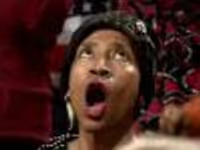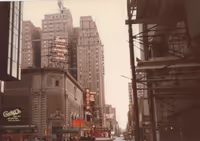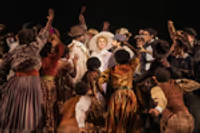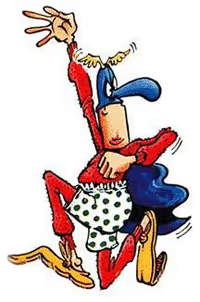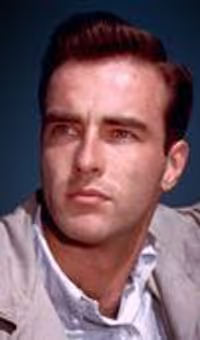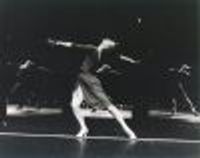Disney finally gets it right - Newsies Preview
socarrat
Chorus Member Joined: 12/20/10
#25Disney finally gets it right - Newsies Preview
Posted: 9/17/11 at 7:04pm
wicked, did you friend at Disney Theatricals happen to mention Hunchback by any chance? I'm hoping for the next two years on that one too.
I would definitely see Newsies on Broadway! I'm hoping to make a trip to NYC next summer, and I'm making a wish list.
#26Disney finally gets it right - Newsies Preview
Posted: 9/17/11 at 9:12pmI have no real memory or connection to the movie going into the show this afternoon, so on it's own, I have to say I really enjoyed it. There were moments that dragged, and Act Two goes a little astray plotwise, and I hated opening the show with Santa Fe. Also, whoever was mixing the sound needed to be shot (I couldn't make out a good portion of singing when the orchestra was at full blast). But I loved the set, the lighting, the choreography and the score was strong overall. And Jeremy Jordan was just a star, he had "it" and even with everything going on, you couldn't take your eyes off him. It all needs work, but there's a lot of good going on so far.
"Hey little girls, look at all the men in shiny shirts and no wives!" - Jackie Hoffman, Xanadu, 19 Feb 2008
Wayman_Wong
Broadway Legend Joined: 4/22/04
#27Disney finally gets it right - Newsies Preview
Posted: 9/18/11 at 3:04amI just watched the movie of 'Newsies' again recently and will add that the film villains, Pulitzer and his henchmen, ARE 'buffoonish, cartoon characters.' They're not playing Shakespeare. Robert Duvall (as Pulitzer) was nominated for a Razzie Award for Worst Supporting Actor, so let's not pretend the villains were played for depth. It's a melodrama. Expecting the bad guys to depicted more seriously is like asking why Rooster or Miss Hannigan aren't deeper characters in 'Annie,' or since we're dealing with musicals with lots of kids, Fagin in 'Oliver!' ... Besides, Pulitzer, Hearst, etc., were real-life villains who DID try to squeeze their profits out of the newsboys. If you want to write a show that's more sympathetic and portrays cuddlier newspaper barons, go right ahead.
#29Disney finally gets it right - Newsies Preview
Posted: 9/18/11 at 8:23amI think this is going to be a show with a limited audience. I had a group of students that spanned a about 5 yeears that just LOVED this film -- in the same way that High School Musical affected an age group. I even watched it BECAUSE they convinced me to do so. I hated it. Was bored silly. I even recorded it for my kids thinking they might like it, but they didn't last more than 1/2 hour. So....I doubt I'll have much interest in catching it should it find its place on the Great White Way.
#31Disney finally gets it right - Newsies Preview
Posted: 9/18/11 at 9:23am
To add to what bustinloose said, I never got the appeal of the movie so I just went to enjoy it as its own entity, and I really enjoyed it. The story moved much faster than I remember, and the new songs stand up to their own. Lesser film adaptations have made it to Broadway, and I could easily see this at the Marquis or Nederlander or a similarly-sized house.
There were a bunch of girls behind me who did love the movie and they were enjoying themselves, even as they were comparing it to the movie. And the older folks in front of me were some of the first on their feet at the end (and not just to head to the door).
"Hey little girls, look at all the men in shiny shirts and no wives!" - Jackie Hoffman, Xanadu, 19 Feb 2008
#33Disney finally gets it right - Newsies Preview
Posted: 9/18/11 at 11:07am

bustinloose, i took public transportation from queens...probably took the same about of time ![]()
Jeremy Jordan sings the hell out of Santa Fe, so I'm with you there!
"Hey little girls, look at all the men in shiny shirts and no wives!" - Jackie Hoffman, Xanadu, 19 Feb 2008
Peter87
Swing Joined: 1/29/08
#34Disney finally gets it right - Newsies Preview
Posted: 9/18/11 at 11:20amWould love to hear more about the new songs! :) (Songlist anyone?) :)
#36Disney finally gets it right - Newsies Preview
Posted: 9/18/11 at 11:43am
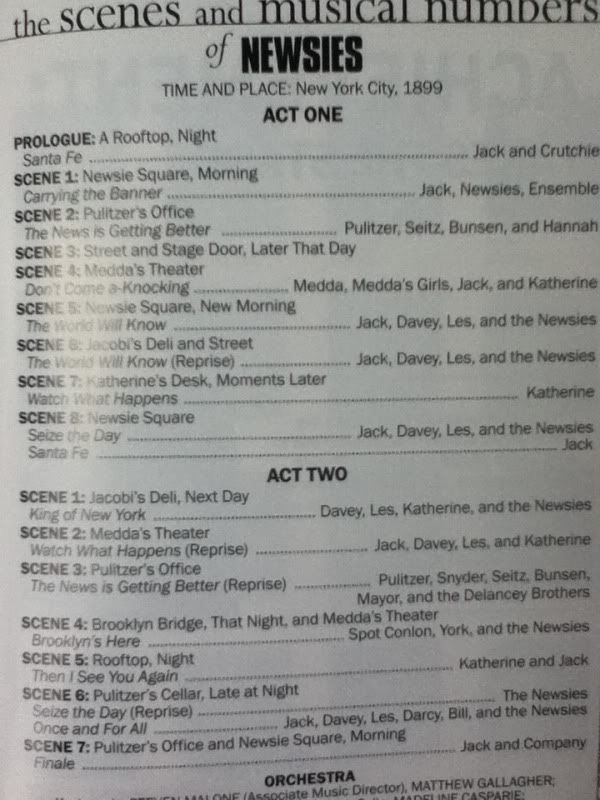
"Hey little girls, look at all the men in shiny shirts and no wives!" - Jackie Hoffman, Xanadu, 19 Feb 2008
#38Disney finally gets it right - Newsies Preview
Posted: 9/18/11 at 11:44amOops, should have refreshed before posting.
"Hey little girls, look at all the men in shiny shirts and no wives!" - Jackie Hoffman, Xanadu, 19 Feb 2008
#40Disney finally gets it right - Newsies Preview
Posted: 9/18/11 at 4:27pmEw. I hate that they had to put "The Musical" on the curtain as if the audience would be confused as it whether it was the movie or not. Stupid.
#41Disney finally gets it right - Newsies Preview
Posted: 9/18/11 at 4:56pmIt would look a lot better if they took the whole logo off. It looks tacky.
#42Disney finally gets it right - Newsies Preview
Posted: 9/18/11 at 5:56pm
Tacky? If you want tacky check out the marquee for Clear Day.
Common decency compels me not to even post a link. If you choose to look at it is of your complete and total volition and not just a quick click of the link.
Where is the "clean up Times Square" movement?
#43Disney finally gets it right - Newsies Preview
Posted: 9/18/11 at 6:48pm^ I saw it yesterday. I don't like it. At all.
#44Disney finally gets it right - Newsies Preview
Posted: 9/20/11 at 11:39am
I just watched the movie of 'Newsies' again recently and will add that the film villains, Pulitzer and his henchmen, ARE 'buffoonish, cartoon characters.' They're not playing Shakespeare. Robert Duvall (as Pulitzer) was nominated for a Razzie Award for Worst Supporting Actor, so let's not pretend the villains were played for depth. It's a melodrama. Expecting the bad guys to depicted more seriously is like asking why Rooster or Miss Hannigan aren't deeper characters in 'Annie,' or since we're dealing with musicals with lots of kids, Fagin in 'Oliver!' ... Besides, Pulitzer, Hearst, etc., were real-life villains who DID try to squeeze their profits out of the newsboys. If you want to write a show that's more sympathetic and portrays cuddlier newspaper barons, go right ahead.
I never said cuddlier.
In the movie, when Pulitzer decides to charge the newsies for the papers, someone says, "Those poor boys." Pulitzer's reaction is, "Nonsense! It's good for their work ethic, it will make them want to work harder!" He thinks he is helping the boys and honestly can't fathom that it would be cruel.
In the musical, when someone says, "Those poor boys," his reaction is, "Who cares aout them, it's good for me!" and then bursts into a song about greed.
A villain who sincerely feels they are doing the right thing is always a more complex, interesting, realistic, and, in my opinion, scary character than one who is simply evil for the sake of being evil. By making Pulitzer the latter, they made him MORE cuddly and less threatening.
Also, in the movie, Duvall plays Pulitzer as eccentric. In life, he was nearly senile by then. It might be silly sometimes, but it's no more a cartoon than Leonardo DiCaprio in The Aviator. THAT'S what I mean by they made the villains into cartoon characters. They reduced them to stock types, "evil villain," "cackling henchman," etc. when the movie at least tried to give them conflicts and personalities and make them real, interesting people. (Wiesel and Snyder were always pretty two-dimensional, my comments were directed at Pulitzer and his crew.)
More specifics, since I feel that my opinion is getting totally dismissed just because I am a fan of the movie (skip this if you really want to avoid spoilers).
Act One ends with the standoff between the newsies and the scabs at the newspaper headquarters. Dave (or maybe it was Jack) gives a moving, impassioned speech about how they all have to stand together, because if they can't trust each other, then there's no way they'll win. The boys all throw down their papers and join the strike, Wiesel and the Delancey brothers start fighting, the cops come, Crutchy gets beaten up and arrested, it's basically the same as that point in the movie. Intermission.
At the opening of Act Two, the next morning Jack has quit the strike because he doesn't want anyone else getting hurt. Dave comes to talk to him and Jack says, "There is no strike! I saw guys outside selling papers today!" Dave says, "Well, yeah, I was out there too, I gotta sell papers or my family doesn't eat." So, that speech in the first act meant nothing? Are the boys on strike or aren't they? The tension and the drama comes from the fact that these boys are sacrificing so much, their only income, in order to achieve their rights. If they are not actually on strike, they're not sacrificing anything. Why does Pulitzer ultimately give in? Why should we care about the strike when it's clearly not all that important to them?
Jack never gets arrested and never goes to the refuge. He talks about the last time he was there when he escaped, but we don't get to see it, and he never faces his greatest fear of going back there. Instead of a dramatic confrontation in front of all of the other newsies to arrest him, he is just brought into Pulitzer's office alone. Pulitzer threatens to have him arrested if he doesn't end the strike. Jack agrees and gets shown into the basement to spend the night. No riot, no resisting arrest, no refuge, no despair. No tension. (If you're counting, this is now the second time Jack has quit the strike. Again, if he doesn't care, why should we?)
I can see what they were trying to do by making the female reporter Jack's love interest, and I almost understand it. But they ruin it at the end. It turns out that the reporter is Pulitzer's daughter, so of course Pulitzer finds out everything. That's when he calls Jack into his office to convince him to end the strike. Katherine feels bad though, because she loves Jack, so she convinces him to write his own paper and distribute it to the other child workers in the city.
In the movie, Jack, Dave, Dave's sister, and the male reporter (who has no relation to Pulitzer) break into Pulitzer's basement and secretly use his printing press. In the show, because Katherine is his daughter, she gets the keys and lets them in. Once again, no danger or tension. She also brings some friends of hers to help -- the sons of two other newspaper barons. That reveal makes for a quick chuckle, but suddenly, the scene isn't about some poor kids risking a lot to fight for truth and justice, it's about rich kids sticking it to their dads. Not nearly as compelling.
At the very end, Pulitzer is finally caving. Jack demands he lower the price of the paper back to what it was. Pulitzer says he can't do that, he'd lose face. So then Jack says, "Okay, then we want you to buy back the papers we can't sell." Pulitzer says, "Whoa, whoa, that was never on the table before!" But he agrees. To recap: they did achieve something, but not the lower price they were fighting for. Yet, when Jack comes out from that conversation he simply shouts, "WE WON!!!" and all the boys cheer, dance, and buy their papers to sell. But...they didn't win. Not exactly, and without further explanation, like, "We got him to agree to buy back unsold papers!...But the price is the same," how in the world would the other newsboys know? We see them buy the papers right after, so it's not like Jack explains later, once the curtain comes down. It is more true-to-life (the actual strike ended not with a reduced price, but with the agreement to buy back unsold papers), but it is not nearly as dramatically satisfying, and it requires more explanation than just "WE WON!"
In the musical, Jack Kelly is his real name, not a pseudonym. Snyder, the warden of the refuge, knows his name is Jack Kelly, yet he has not been able to get him back to the refuge since he escaped. At least in the movie, there is the explanation of his real name being Francis Sullivan and Snyder hasn't found him because he is using a fake name. If there is no fake name, why the heck hasn't he been caught already? It makes no sense.
I think I said this in my earlier post, but at least twice, characters come on stage and say, "I just came from so-and-so and this major plot point happened!" Why don't we see those scenes? We don't see Jack go to Brooklyn and the conversation with Spot. In fact, Spot doesn't even appear in the show until Act Two, when he arrives towards the end to save the day. They only talk about him. Also at the end, Medda comes on and says, "I just came from the governor and he is very upset at what you are doing and he is on his way!" Again, why don't we get to see that? It is much more exciting to see something happen than to hear about it. Show, Don't Tell.
I understand that a lot of people don't like the movie. But a lot of others do, and everything they love about it is what has been sucked out of it. It's like the creators didn't trust the story of the newsies strike to be universal or compelling enough, so they relegated it to a subplot and instead focused on Jack and his girlfriend, which turned a great David-and-Goliath real life story into a generic love story. Maybe that's what they intended, but it's not the Newsies I wanted to see and I was incredibly disappointed. I'm actually kind of baffled that so many people on this thread liked it, because all the conversations I overheard on my way back to the city after the dress rehearsal were very similar to my thoughts.
Everything in life is only for now. ~ Avenue Q
There is no future, there is no past. I live this moment as my last. ~ Rent
#45Disney finally gets it right - Newsies Preview
Posted: 9/20/11 at 12:05pmThe addition of "The Musical" to any title automatically turns me off. Especially when it became the thing to do for campy satire musicals of anything ironic or irreverent, usually in a bandwagon attempt to be trendy and hip. The number of "______: The Musical" shows opening in Chicago annually produced is astounding, especially when the only people who usually see them are friends of the performers who always thought they were hilarious and original in college. I actually went to one of those shows. It was BYOB. I'm not kidding.
#46Disney finally gets it right - Newsies Preview
Posted: 9/20/11 at 12:13pm
Man, this new clip is exactly what I thought it would be. It looks like an ice show, as do so many movie-to-stage conversions (I"m not even calling it adapted). The dancer/skater kids are all terrific. I particularly like their split-leaps into triple salchows. The double axles look good, too. I give most of them a 9.5. Maybe even ten. Great technique.
But what does this have to do with starving newsboys on the streets of NY? I forget. Maybe the choreographer and director could tell us.
EDIT: And the newspaper splits? A nice "nod to/borrowing of" Gene Kelly's routine in "Summer Stock."
LINK
blocked: logan2, Diamonds3, Hamilton22
#47Disney finally gets it right - Newsies Preview
Posted: 9/20/11 at 12:58pm
'But what does this have to do with starving newsboys on the streets of NY? I forget. Maybe the choreographer and director could tell us."
What's to tell, it's a musical not a documentary. How can you judge the show from that clip, with the cast on the postage stamp "The View" stage? Have you ever been to PaperMill?
#48Disney finally gets it right - Newsies Preview
Posted: 9/20/11 at 1:07pm
"What's to tell, it's a musical not a documentary."
What a terrible, terrible answer.
EDIT: This is a generic dance break. There's no storytelling or character development. What is this, 1922? Did we just sleep through the golden age of Broadway and all of its breakthroughs? This "gymnastics routine" could come from any show in any era. You could dress the same dancers in any costumes you want and make them any character you want. Just change the music. It's a series of steps. No ideas or feelings behind them. No communication of a story. Just leaps and turns. Really good ones, too!
I'm impressed with the dancers' skills but there's no artistry here. And it isn't the dancers' faults. This is what they were given to do. I guess audiences are expecting less these days as well. A high kick and triple turn are all they really want. So that's exactly what they're getting. No more, no less.
EDIT2: Oh, I do take one thing back ... there is one creative idea in this dance. Just one non-generic concept, unoriginal though it may be. It comes right from Gene Kelly's dance routine in "Summer Stock." Jump to the 2:50 mark, if you don't want to watch the whole thing.
http://www.youtube.com/watch?v=Vw-qlHuktJs
blocked: logan2, Diamonds3, Hamilton22
#49Disney finally gets it right - Newsies Preview
Posted: 9/20/11 at 2:41pm
I agree Best12, where is the dancing? You hire great dancers to split, jump and flip? Not only does the number lack any character, it also has no build. And I am so sick of people saying. don't judge the show on the clip. That's exactly what the producers want us to do. The pick a part of the show that people will enjoy, and judge if they want to see the show or not.
And Gene Kelly did it much better and with finese.
#50Disney finally gets it right - Newsies Preview
Posted: 9/20/11 at 3:30pm
Well, if you watch that Gene Kelly clip, you see a character playing with ideas. His dance is a freeform inner monologue evolving out of the story. There is interaction with the environment, with his emotions, with the props (most ingeniously).
It doesn't take high tech or millions of dollars to create something like that.
Just a talented artist with a vision.
blocked: logan2, Diamonds3, Hamilton22
willrogers2008
Featured Actor Joined: 12/9/08
#51Disney finally gets it right - Newsies Preview
Posted: 9/20/11 at 6:33pmamoni2, nothing related to Newsies, but your avatar made me cry. Amazing!
#52Disney finally gets it right - Newsies Preview
Posted: 9/20/11 at 7:24pmJeremy Jordan has a lovely voice but he didn't really seem to let it fly on The View. Maybe the accent makes it difficult to do so, I'm not sure.
#53Disney finally gets it right - Newsies Preview
Posted: 9/20/11 at 7:28pmYou can't tell he has a lovely voice from that clip, he seems to be straining to hit some money notes. And he swoops a lot.
#54Disney finally gets it right - Newsies Preview
Posted: 9/20/11 at 8:34pm
" The new Bill Pullman female character
was weak in singing King of New York"
Uh? Female? The song, if I recall in the film, centers on Denton's success on getting "the boys" in the papers. So, now do we have Queen of New York? Then again, with Racetrack's solo during the number, I guess they must have only altered half of the lyrics, right?
Also, "new romance?" Do they delve more into the romance between Jack & Sarah, or does one of the other Newsies fall in love? Sorry, I'm a HUGE fan of the movie, so forgive me for these questions.
#55Disney finally gets it right - Newsies Preview
Posted: 9/20/11 at 11:06pm
It's still "King of New York," they just change the verse about Denton.
Katherine (the female reporter) is now Jack's love interest. Sarah is cut.
Everything in life is only for now. ~ Avenue Q
There is no future, there is no past. I live this moment as my last. ~ Rent
Videos


